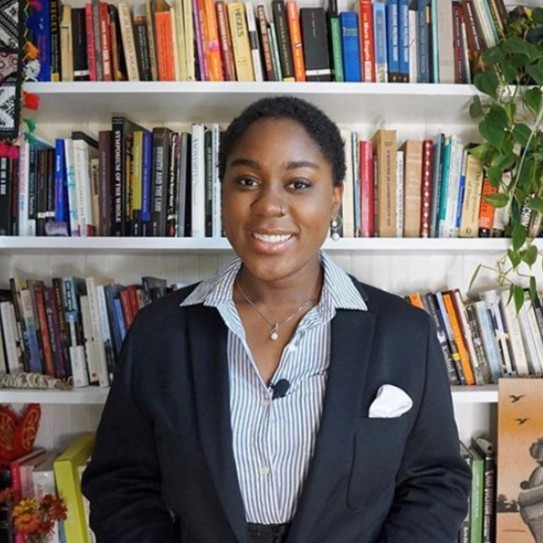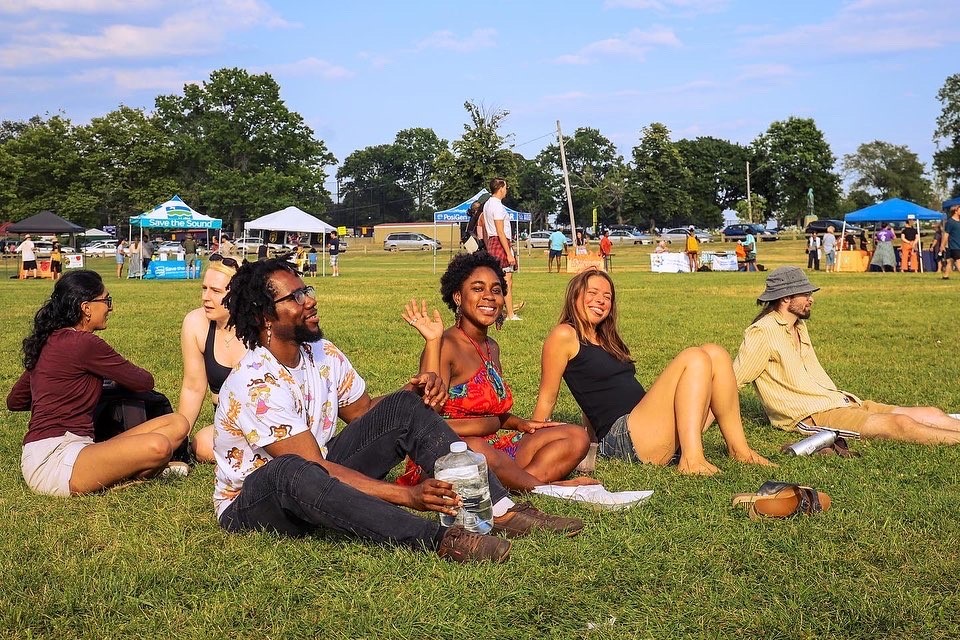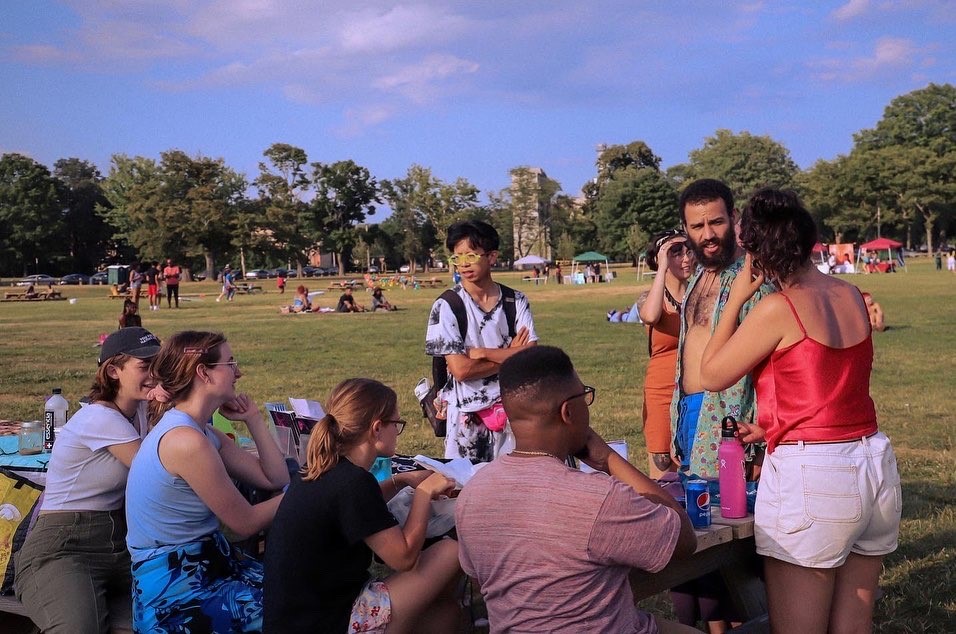Shining light on the advocacy and sustainability work of young environmental leaders working to make their communities safer and cleaner. As part of our commitment to youth engagement and equity, we are holding an ongoing series of interviews with individuals and sharing their stories to spread awareness.

Katharine “Kat” Morris is a 24-year-old scholar-activist for environmental justice. She graduated in 2021 from the University of Connecticut with a Master of Public Policy. Originally from New Jersey, Kat moved to CT years ago and has since lived in many communities including but not limited to Bridgeport, Hartford, and now New Haven. She is a currently a Governor’s IIJA Fellow working in the Office of the Commissioner of the Department of Energy and Environmental Protection.
Kat is passionate about climate action, environmental justice, health equity, racial justice, and human rights.

She strives to strengthen connections between people and our shared ecosystem while educating the public on how organizing with intersectionality in mind can helps develop action plans that address multiple issues simultaneously. As she likes to put it, intersectional environmental justice helps us feed many birds with one scone. This interest is what made her the found the UCONN Collaborative Organizing Club (UCCO). UCCO is intended to prioritize intersectionality in social and climate justice grassroots movement being led across campus. This came after Kat’s many convenings with racial justice organizations, environmental groups, and LGBTQ+ groups; she encouraged them to talk to each other to build collective community power. UCCO’s values were grounded in intentionality, collaboration, and solidarity in the fight for environmental justice. “Reality isn’t siloed, so we can’t silo our response to it,” said Morris. She believes that sustainable solutions must represent everyone and ensure that no person or facet of an issue goes overlooked or undermined.
The work Kat did as a policy intern at Health and Equity Solutions in 2021 positively reinforced her interests in human rights and health equity. One of her major projects was political organizing to get racism declared as a public health crisis in various municipalities and statewide. With her efforts, S.B. 1 An Act Equalizing Comprehensive Access to Mental, Behavioral, and Physical Health Care in Response to the Pandemic Racism as a Public Health Crisis by the legislature in 2021.
On July 15th, 2022, Kat the the first annual Seaside Sounds for Environmental Justice community festival at Seaside Park in Bridgeport, CT. The event was a call to organize for environmental justice and to celebrate the rich African American and Indigenous history and vibrant culturalism in Bridgeport, a community that she feels is neglected systemically. This passion project was inspired by her time living in Bridgeport and attending Bassick High School. Living in the city introduced her to the concept of environmental racism through her experiences.

She chose Seaside Park as the Seaside Sounds location because she recognized the park as a good representation of public gems the City has to offer. She wanted the history to be appreciated and to allow more consciousness and awareness of Bridgeport’s past regarding Black liberation in Little Liberia. The South End of Bridgeport, where Seaside Park resides, was dubbed Little Liberia as a prominent underground railroad destination community during the atrocity of chattal slavery in America. Today, Seaside Park resides between the PSEG-owned gas facility, and the Wheelabrator incinerator, the largest trash incinerator in Connecticut.
Seaside Park was there long before the polluting facilities. People and animals deserving of healthy lives were there long before polluting facilities. There are people living and going to school directly next to the incinerator and people who work in Captains Cove are exposed to emissions daily. Kat wanted to use the park to ground participants in the values of climate action, conservation, and environmental health. More importantly, she wanted to do this in a way that was aligned with pleasure activism by connecting people to each other and nature as they frolicked in the park, appreciating the beauty and incomparable value of life.

When asked what advice she would give to people wanting to get involved in the movement she said, “Just do it! Whether it be policy, rallies, journalism, art, and other things. Believe in yourself!” She highlights that with the climate crisis, youth leadership is essential. When an individual sees something wrong in their community, they can and should do something.
